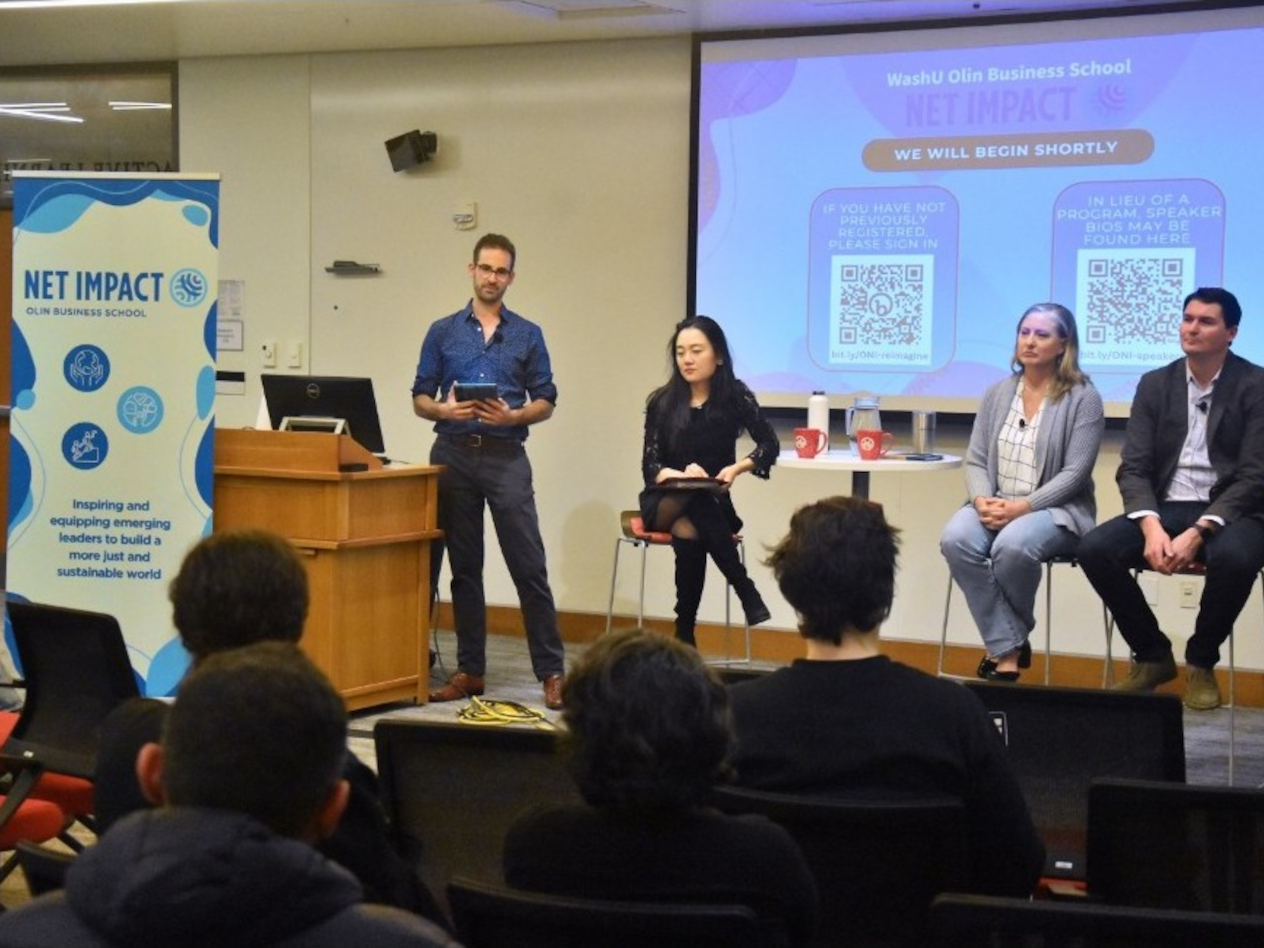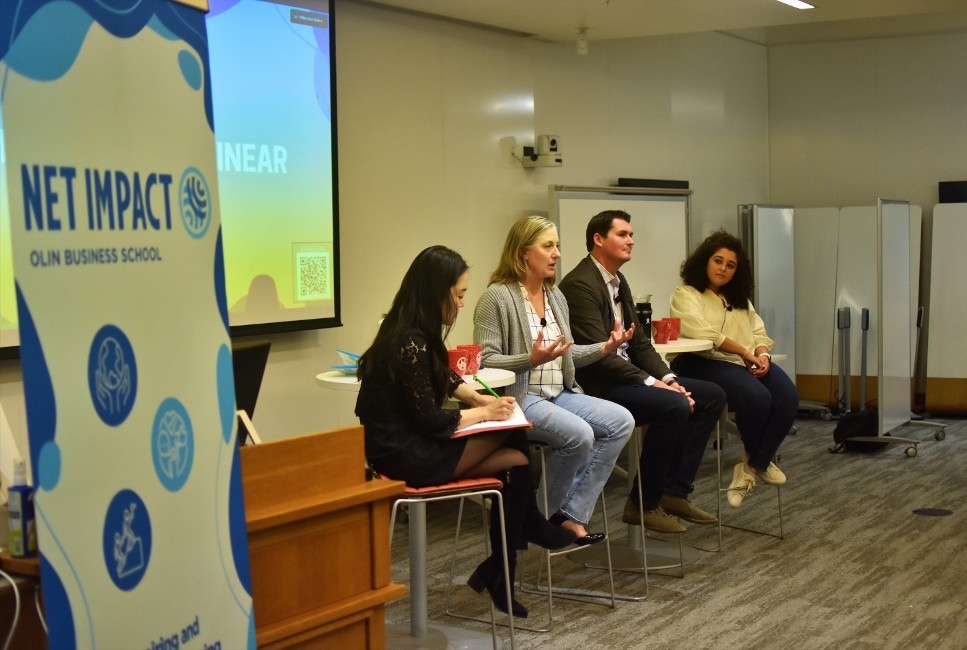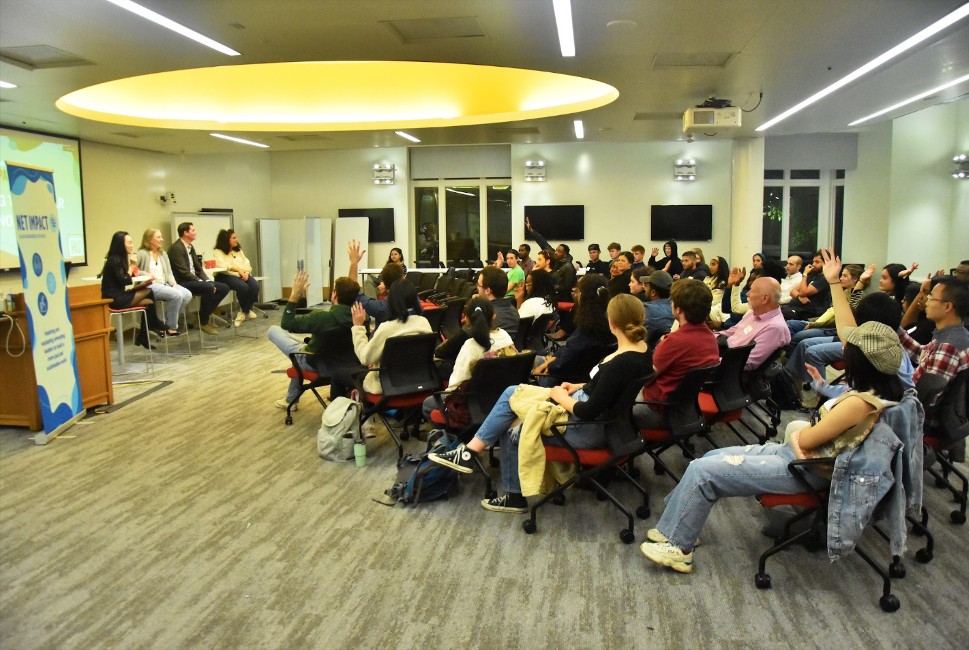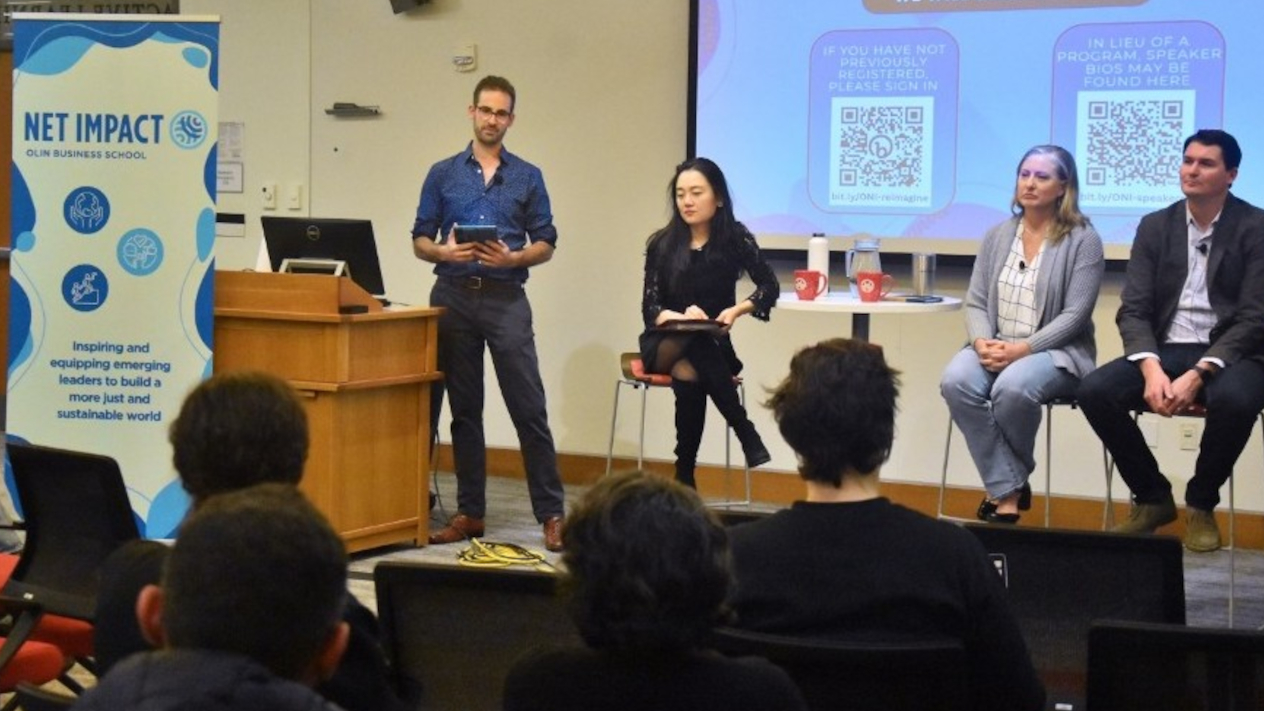Olin Net Impact launches series focused on sustainable business practices
- November 29, 2023
- By Guest Author
- 3 minute read

How well are business schools equipping today’s students to address global issues such as climate change, wealth disparity, declining globalization, generative AI and skepticism of capitalism as they emerge and grow as business leaders?
That question forms the core of a new series of events launched November 9 by Olin Net Impact, a graduate student club dedicated to cultivating environmentally and socially conscious business leaders. The premier event in the series was a speaker panel titled "Reimagining the Linear Economy."
This inaugural event for the series was presented in partnership with the Boeing Center for Supply Chain Innovation, Olin’s Supply Chain & Operations Association and the Net Impact chapter at Bayer Crop Science. This series is designed to introduce students and the community to groundbreaking concepts shaping the future of business in our changing world.
Michael Roytburd, MBA 2024, the club's co-president and event emcee, explained that the "Reimagining Business" series emerged from the group's belief that modern business education is not equipping future business leaders with a necessary understanding of the rapidly changing world—including the issues of climate change, wealth disparity, declining globalization, generative AI and capitalism.
With this event series, students in Net Impact hope to increase awareness about vital topics that will ensure their future success.
This inaugural event acquainted attendees with the circular economy—a sustainable economic model that champions principles such as reusing, recycling, and remanufacturing to establish a sustainable, regenerative and restorative approach to business. The panel featured four distinguished voices:
- Caroline Ling, a sustainability expert at McKinsey, facilitated the panel and brought her deep personal and professional expertise
- Patrick Arnold, co-founder of CircularSTL and CEO of 10 Billion Strong, represented the grassroots, entrepreneurial, and local perspective. He advocated for localized approaches to circularity, emphasizing the global potential for sustainability that it offers.
- Jess Christiansen, head of sustainability for Bayer Crop Science, offered a corporate perspective. She shed light on the practical implementation of circular economy principles within multinational corporations and the substantial commercial opportunities therein.
- Radwa Eissa, PhD candidate at Missouri S&T, contributed a researcher's perspective. Her work focuses on understanding the benefits of circularity within the commercial real estate sector.
The panelists, in collaboration with incisive questions from the audience, built a case for circularity. They worked together to educate the audience on the topic, convince them of the potential for circular economy, and empower them to learn more and implement circularity in their own disciplines. The group shared powerful examples of circularity, from harvesting water from tomato processing to harvesting used battery materials. As the panel came to a close, two things were clear:
- There is massive business opportunity in circularity.
- There is a lot of work to be done, and young people are the ones to do it.
As the event transitioned into a networking reception catered by Lona’s Lil Eats, Roytburd teased the group’s spring event titled "Reimagining Capitalism," which promises to be another challenging exploration of the evolving business landscape.
Olin Net Impact's efforts underscore the influential role that passionate minds can play in the pursuit of sustainability and positive change within business. In a world needing bold ideas, Olin Net Impact is leading the way.
A recording of the event is available below. Contact Olin Net Impact at OlinNetImpact@wustl.edu. To learn about future events, join Olin Net Impact’s mailing list.
Photos by Vitaliy Sharlai, MBA 2024. Michael Roytburd, MBA 2024, wrote this for Olin’s News & Media section.
Olin Net Impact 2023
Introducing students and the community to groundbreaking concepts shaping the future of business in our changing world.


Reimagining the Linear Economy
Introducing the circular economy by eliminating waste and pollution, circulating products & materials at their highest value, and regenerating nature.
Media inquiries
For assistance with media inquiries and to find faculty experts, please contact Washington University Marketing & Communications.
Monday–Friday, 8:30 to 5 p.m.
Sara Savat
Senior News Director, Business and Social Sciences

